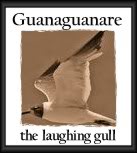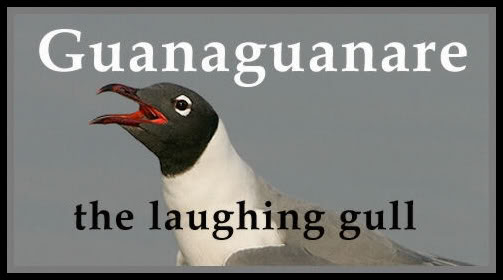United we stand, divided we fall. Growing up, the elders would diffuse our youthful impatience with a calming, "Nothing before its time." Tonight I am celebrating the time that has arrived, and the hope that we continue to embrace our region and every nation within it. I anticipate that on many levels horizons will continue to expand for us all.
I want to share some excerpts about the Helms-Burton Act or The Cuban Liberty and Democratic Solidarity (Libertad) Act of 1996 from the article that I've been reading, "Who's Isolating Whom?: Title III of the Helms-Burton Act and Compliance with International Law." Contributors: Antroy A. Arreola - author. Journal Title: Houston Journal of International Law. Volume: 20. Issue: 2. Publication Year: 1998. Page Number: 353-379.
"The Helms–Burton Act was condemned by the Council of Europe, the European Union, Britain, Canada, Mexico, Brazil, Argentina and other U.S. allies that enjoy normal trade relations with Cuba. The governments argued that the law ran counter to the spirit of international law and sovereignty.""Some regions and countries have found ways around it. The EU, for example, "introduced a Council Regulation (No 2271/96)[7] (law binding all member states) declaring the extraterritorial provisions of the Helms–Burton Act to be unenforceable within the EU, and permitting recovery of any damages imposed under it. The EU law also applied sanctions against US companies and their executives for making Title III complaints.""The United Kingdom had previously introduced provisions by statutory instrument extending its Protection of Trading Interests Act 1980 (originally passed in the wake of extraterritorial claims by the U.S. in the 1970s) to United States rules on trade with Cuba. United Kingdom law was later extended to counter-act the Helms–Burton Act as well. This included criminal sanctions for complying with certain provisions of the Helms–Burton Act whilst in the UK.
"The Canadian Parliament offered amendments to Canada's Foreign Extraterritorial Measures Act (FEMA) that could effectively counteract Helms-Burton. The amendments, called Bill C-54, have three purposes. First, Bill C-54 gives the Canadian Attorney-General the power to identify foreign laws that infringe upon Canadian sovereignty and grants the power to deny nationals and governments of the targeted countries access to Canadian records that may be used in litigation or criminal prosecution. Second, Bill C-54 blocks the enforcement of judgments rendered by courts of targeted countries and allows Canadians to recover court costs. Finally, the amendments provide stiff fines, some as high as US$1.5 million, for Canadian companies that comply with the boycott laws of targeted countries."Canadian investment in Cuba continues to grow. Canada is Cuba's largest trading partner with commerce totaling about US$500 million. While Canadian private industry prospers by investing in Cuban pharmaceuticals, nickel mines, and tourism, the Canadian Government refuses to be left out, agreeing to finance the construction of a new terminal at Havana International Airport."In a vote of 317 to 1, Mexico's Chamber of Deputies adopted an "Antidote Law" to counter Helms-Burton. The "Law for the Protection of Business and Investment from Foreign Regulatory Provisions that Contradict International Law" applies to all people or legal entities that (1) are located in Mexico, (2) take actions which have effect in Mexico, and (3) submit to Mexican Law. The law prohibits two types of activities. First, it forbids "acts that affect trade or investment, when those acts are a consequence of the extraterritorial effects of foreign laws." Second, the Antidote Law prohibits individuals and companies from providing information to foreign governments or foreign courts if the information relates to proceedings under the extraterritorial foreign law. Violators of the Antidote Law incur fines of approximately US$290,000 for actions in compliance with the invalid foreign law and fines of approximately US$145,000 for providing information to foreign courts. The Antidote Law empowers as well as penalizes, having both a "blocking effect" and a "mirror effect." Article 4 states that "National courts shall refuse the acknowledgment and enforcement of judgments, judicial requirements or arbitral awards issued on the basis of the foreign laws." Article 5 contains the mirror effect. The Article awards damages in Mexican courts to those who have been affected by the foreign laws. The statute awards the aggrieved individual a sum equal to the foreign judgment (hence the term "mirror effect") as well as other damages, economic losses, and court costs. While the damages awarded under the Antidote Law are considerable, it is unclear whether this Mexican law will ever be implemented."
"The Latin American Economic System (SELA) issued a report disputing the legality of Helms-Burton under international law. The 159 page report declares that the legislation "not only negatively affects Cuba's interests and its development, but also damages the interests of Latin America and the Caribbean and the international community by interfering in its sovereign decisions and the management of its foreign relations." The report denounces the United States for attempting to create a secondary boycott around Cuba, and questions the validity of the primary boycott."
I've been looking at the comments by online readers and it is not surprising that many of us do not understand this piece of legislation or the full implications of the blockade against Cuba. The less than sophisticated headlines "US BIG STICK FOR RAUL" and "CASTRO CRIES FOR HELP" betray the mainstream's contribution to the attention deficit. The problems faced by countries in our region - whether Cuba or Haiti or our own homeland, and anything more complicated than the "squawk-and-forget-about-it" scandals of which there is apparently a limitless supply, are not allowed the focus which they deserve.
We have continued to do business with Cuba and I hope that this will increase. Some persons seem to be assuming that the US does not also continue to do business with Cuba. Despite the embargo, the US was Cuba's fifth-largest trading partner in 2009, when American agricultural exports to that island totaled $528 million. This was made possible by a law passed by the U.S. Congress in 2000 - the Trade Sanctions Reform and Export Enhancement Act, which allowed American farmers and pharmaceutical companies to resume sales of agricultural products and medical supplies on a cash-only basis. This trade has fallen off a bit because of Cuba's diminished foreign exchange reserves and also as they have begun to establish relationships with other partners. It has been estimated that total sales of American agricultural products to Havana could easily top $1 billion if financing were to be made available to Cuba.
WikiLeaks Cablegate has provided us with some insight into how our relationship with Cuba is monitored by the US. As a favour to us, Title III of the Libertad Act has been suspended because "it is in the U.S. national interest to suspend Title III of the Libertad Act for Trinidad and Tobago, based on its contribution to U.S. energy security as a reliable supplier of oil and gas and its importance as an economic, political, and security leader in the eastern Caribbean." [See paragraph 7] Title III gives U.S. nationals and corporations the right to sue foreign companies that "traffic" in property expropriated by Cuba from the U.S. entity. I have no idea how having that waiver works to our benefit and I should be grateful if anyone would take the time to explain it to me. Anyway, periodically during each year, the US Embassy in Port of Spain does a Libertad Act, Title III Review for T&T, I assume to provide evidence that we continue to deserve the suspension of Title III. Over the period covered by Cablegate, I have seen basically the same questions being asked with a few slight changes at times. These questions seek information on developments, if any, in our interactions with Cuba.
If you would like to see the Libertad Act, Title III reviews for T&T see here. There is also an interesting report prepared in 2008 which describes the Embassy's appraisal of T&T's relationship with Cuba and that is also recommended reading.
Blessed is all of creation
Blessed be my beautiful people
Blessed be the day of our awakening
Blessed is my country
Blessed are her patient hills.
Mweh ka allay!
Guanaguanare

WikiLeaks Cablegate has provided us with some insight into how our relationship with Cuba is monitored by the US. As a favour to us, Title III of the Libertad Act has been suspended because "it is in the U.S. national interest to suspend Title III of the Libertad Act for Trinidad and Tobago, based on its contribution to U.S. energy security as a reliable supplier of oil and gas and its importance as an economic, political, and security leader in the eastern Caribbean." [See paragraph 7] Title III gives U.S. nationals and corporations the right to sue foreign companies that "traffic" in property expropriated by Cuba from the U.S. entity. I have no idea how having that waiver works to our benefit and I should be grateful if anyone would take the time to explain it to me. Anyway, periodically during each year, the US Embassy in Port of Spain does a Libertad Act, Title III Review for T&T, I assume to provide evidence that we continue to deserve the suspension of Title III. Over the period covered by Cablegate, I have seen basically the same questions being asked with a few slight changes at times. These questions seek information on developments, if any, in our interactions with Cuba.
If you would like to see the Libertad Act, Title III reviews for T&T see here. There is also an interesting report prepared in 2008 which describes the Embassy's appraisal of T&T's relationship with Cuba and that is also recommended reading.
T&T continues to maintain the stance that it is a friend to all and in the spirit of that enlightened openness, we may choose as our motto, this quote by Mahatma Gandhi:
“I do not want my house to be walled in on all sides
and my windows to be stuffed.
I want the cultures of all the lands
to be blown about my house as freely as possible.
But I refuse to be blown off my feet by any.”
---Mahatma Gandhi
Blessed is all of creation
Blessed be my beautiful people
Blessed be the day of our awakening
Blessed is my country
Blessed are her patient hills.
Mweh ka allay!
Guanaguanare















0 comments:
Post a Comment